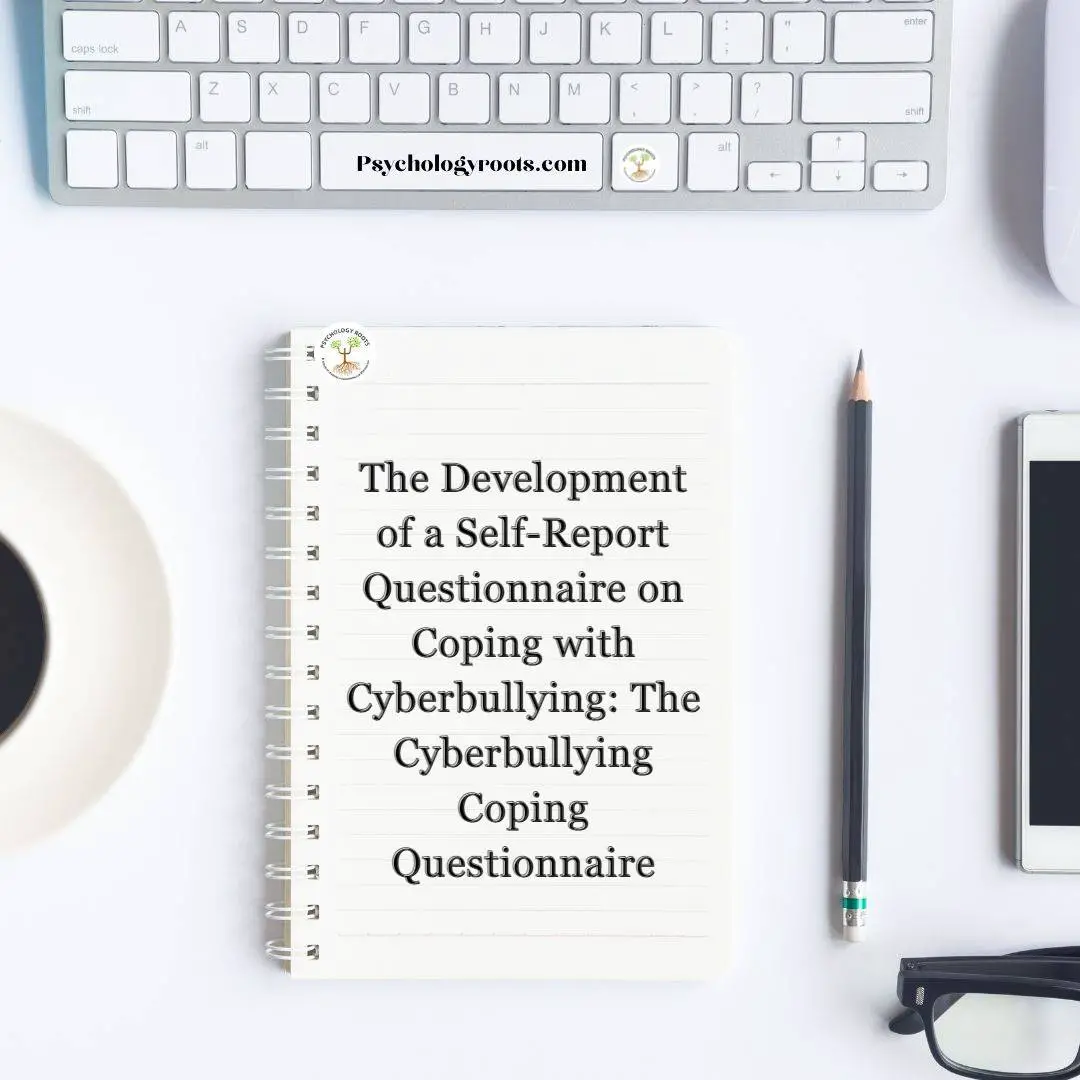Table of Contents
The Development of a Self-Report Questionnaire on Coping with Cyberbullying: The Cyberbullying Coping Questionnaire
Here in this post, we are sharing the article on “The Development of a Self-Report Questionnaire on Coping with Cyberbullying: The Cyberbullying Coping Questionnaire”. You can read the abstract of the article with a download link. We have thousands of articles in our collection (See articles). You can demand us any article related to psychology through our community, and we will provide you within a short time. Keep visiting Psychology Roots.
Abstract of the Article
The negative effects and the continuation of cyberbullying seem to depend on the coping strategies the victims use. To assess their coping strategies, self-report questionnaires (SRQs) are used. However, these SRQs are often subject to several shortcomings: the (single and topological) categorizations used in SRQs do not always adequately differentiate among various coping responses, in addition, the strategies of general SRQs fail to accurately measure coping with cyberbullying.

The Development of a Self-Report Questionnaire on Coping with Cyberbullying: The Cyberbullying Coping Questionnaire
This study is therefore aimed to develop an SRQ that specifically measures coping with cyberbullying (i.e., Cyberbullying Coping Questionnaire; CCQ) and to discover whether other, not single and topological, categorizations of coping strategies can be found. Based on previous SRQs used in the (cyber)bullying (i.e., traditional and cyberbullying) literature (i.e., 49 studies were found with three different SRQs measurings coping with traditional bullying, cyberbullying or (cyber)bullying) items and categorizations were selected, compared and merged into a new questionnaire.
In compliance with recommendations from the classical test theory, principal component analysis and confirmatory factor analysis were done, and a final model was constructed. Seventeen items loaded onto four different coping categorizations: mental-, passive-, social-, and confrontational-coping. The CCQ appeared to have good internal consistency, acceptable test-retest reliability, good discriminant validity and the development of the CCQ fulfilled many of the recommendations from classical test-theory. The CCQ omits working in single and topological categorizations and measures cognitive, behavioral, approach and avoidance strategies.
Authors of the Article
- Niels C.L. Jacobs
- Trijntje Völlink
- Francine Dehue
- Lilian Lechner
Avail Article [sociallocker id=64051]
[/sociallocker]
Need Any Other Article:
Are you looking for any other article? Don’t Worry, We provide you free and quickly. Just need to create a query in our community.
Information:
The purpose of our website is only to help students to assist them in finding the best suitable instrument for their research especially in Pakistan where students waste a lot of time in search of the instruments. It is totally free of cost and only for creating awareness and assisting students and researchers for good researches. Moreover, it is necessary for you to take the permission of scales from their representative authors before use because copyrights are reserved by the respected authors.
Help Us Improve This Article
Did you find an inaccuracy? We work hard to provide accurate and scientifically reliable information. If you have found an error of any kind, please let us know.
Add comment. we appropriate your effort.
If you have any scale or any material related to psychology kindly share it with us at psychologyroots@gmail.com. We help others on behalf of you.
Follow